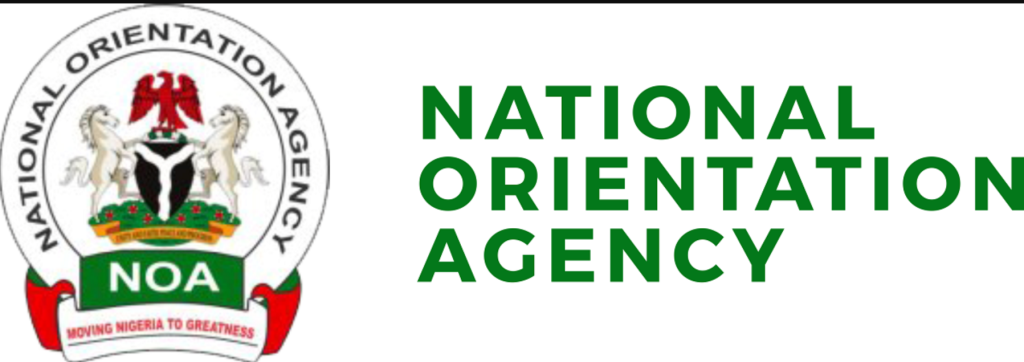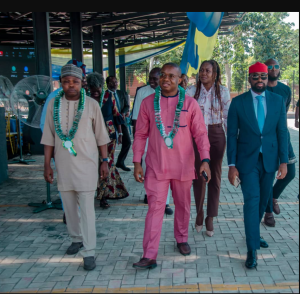
A Breath of Fresh Air for NOA

Nigeria’s National Orientation Agency (NOA) is in dire need of funding and strategic support to fulfill its mandate effectively.
Established in 1999 as part of the Federal Ministry of Information and National Orientation, NOA has struggled to gain traction, partly due to limited financial backing and a lack of meaningful engagement with the public. The agency’s purpose is critical: to promote national values, unity, and public enlightenment, yet successive administrations have overlooked its potential. Today, NOA faces both funding challenges and public disinterest—a crisis that calls for a renewed focus on sustainable practices and genuine community engagement.
The origins of the NOA lie in the Mass Mobilisation for Self-Reliance, Social Justice, and Economic Recovery (MAMSER), which was launched in 1987 by General Ibrahim Babangida’s administration. MAMSER, led by Professor Jerry Gana, aimed to prepare Nigeria for a transition to civil governance. The agency had a powerful effect on Nigerian society, rallying the public around shared goals of economic recovery and social justice. However, the transition was derailed with the annulment of the 1993 elections, leading to MAMSER’s dissolution and the eventual creation of NOA.
Since its inception, NOA has had a challenging journey, largely relegated to hosting small-scale seminars and holding local meetings with little outreach impact. Despite its wide presence, with branches in all 36 states, Abuja, and 774 local government areas, NOA’s impact has been minimal. Poor funding and a perceived lack of relevance have diminished the agency’s ability to effectively engage with the public on issues critical to national cohesion and civic responsibility.
Recently, there is renewed interest in the agency’s mission. President Bola Tinubu appointed Lanre Issa Onilu as the new Director-General, a move that reflects the administration’s intent to revitalize NOA. Last week, Adewale Hammed, representing Agege Federal Constituency, introduced a motion to review NOA’s budget allocation. The current budget appropriates N8.8 billion to the agency—a modest sum given its extensive mandate—but there is uncertainty whether the full amount will be disbursed. This budget proposal brings NOA’s need for stronger government backing and sustainable support strategies to the forefront.
Over the years, the public’s faith in government initiatives has waned, partly due to ineffective communication and engagement strategies. For NOA to regain credibility, it must go beyond superficial propaganda and deliver messages that resonate with Nigerians on pressing issues, such as environmental sustainability, public health, and national unity. But first, it needs the resources to operate effectively.
To rebuild public trust, NOA’s approach must be rooted in transparency and community-based impact. By leveraging community engagement, sustainable practices, and a people-centered communication strategy, the agency could be better positioned to address Nigeria’s pressing issues. Topics like waste management, water conservation, and clean energy awareness could not only increase NOA’s relevance but also align with Nigeria’s environmental goals and CSR efforts across sectors.
Interestingly, there is no problem CSR and sustainability cannot solve. Incorporating corporate social responsibility (CSR) and sustainability into NOA’s operations could provide long-term benefits, both for the agency and Nigerian communities. For example, collaborative initiatives with private sector companies could fund awareness campaigns on climate action and environmental responsibility, tapping into local talent and creating employment opportunities in the process. These initiatives would not only increase NOA’s reach but also foster a sense of shared responsibility for Nigeria’s future.
Many businesses in Nigeria are now placing greater emphasis on sustainability and corporate responsibility, making this an opportune moment for NOA to explore partnerships with the private sector. By aligning with these goals, NOA can play a vital role in supporting initiatives like tree planting, waste recycling programs, and climate-resilient agriculture, helping to bridge the gap between public and private efforts toward environmental stewardship.
Such efforts would showcase the agency as a proactive force in promoting sustainable practices, ultimately inspiring greater public trust. A collaboration with industries could provide NOA with the much-needed resources and visibility to create awareness programs that resonate with Nigerian communities and address real-world challenges.
Ultimately, funding is critical to NOA’s success. Without adequate resources, the agency’s mission will continue to be undermined, as will public confidence in its role. To establish a lasting impact, NOA needs a budget that supports a wide range of activities, from community outreach programs to modern digital campaigns that engage Nigeria’s youth.
The government can also explore alternative funding models, including public-private partnerships, grants, and contributions from international organizations focused on sustainable development. With a solid financial foundation, NOA would be empowered to improve its outreach strategies, create engaging programs, and train its staff to be effective mobilizers of national values and sustainable practices.
A well-funded NOA would serve as an important bridge between the government and the people, fostering a sense of national pride, unity, and shared goals for Nigeria’s future. If empowered, NOA could shift from being a “talk-shop” to a dynamic, relevant agency that genuinely serves the interests of Nigerians by addressing topics that matter most to them.
Giving a fresh breath to the NOA is about more than increased funding; it is about creating an agency that speaks directly to the heart of Nigerian society. It’s about building trust, addressing concerns, and embracing modern strategies that include CSR and sustainability. For NOA to succeed, the government must take bold steps to make governance relatable and interesting for citizens, rebuilding trust by connecting policy changes to the real-world issues that Nigerians face.
NOA’s leadership, armed with adequate resources and a vision aligned with Nigeria’s goals, could transform the agency into a respected institution that promotes civic responsibility, environmental stewardship, and a unified national identity. Increasing funding for the agency could be the first step towards making NOA a meaningful player in Nigeria’s sustainable development and a catalyst for true national pride.









